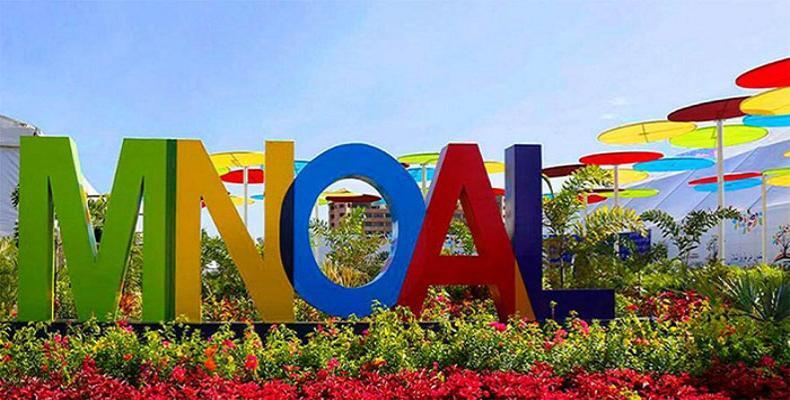Caracas, July 21 (RHC)-- The Non-Aligned Movement (NAM) has condemned Washington's continued hostile policies toward Venezuela — this year’s host country — and called for stronger multilateralism against the hegemony of powerful nations that undermine the world order and international law.
The Ministerial Meeting of the Coordinating Bureau of the Non-Aligned Movement (Co-BNAM) took place on Saturday in Caracas, Venezuela. The Bolivarian foreign minister, Jorge Arreaza, addressed the delegates, saying: "We are living during an historic moment in which multilateralism is being attacked, a systemic phenomenon that affects many countries in the world (with) coups d'états, political and economic destabilization, geopolitical interests," said the minister at the movement’s opening meeting.
Arreaza insisted on the right to peace and for the people of nations to decide their future without external pressures. "Venezuela, like Cuba, Iran, Syria, Nicaragua, the Democratic People's Republic of Korea, we are victims of interventionism, of foreigners who insist on a change of government, who bet on a servile regimes (that will bend) to their interests," Arreaza said.
During his speech, Iranian Foreign Minister Mohamad Yavad Zarif affirmed that a "new wave of extreme unilateral adventurism" on behalf of the U.S. that “threatens world stability and peace in one way or another."
Despite the "efforts to address the concern about our peaceful nuclear program," the U.S. government "is ending the Iranian nuclear agreement, violating resolutions" from the United Nations Security Council, said Zarif Saturday. The foreign minister, referring to U.S. President Donald Trump, said, "He has sanctioned those who are trying to comply" with the deal, formally known as the Joint Comprehensive Plan of Action (JCPOA).
Zarif added that in the case of Venezuela, the U.S. is on a path of "gross intervention" in the internal affairs of the South American country, as exemplified by "the instigation of a failed coup last April."
Greeting the 120 delegates, Cuban Foreign Minister Bruno Rodriguez said his country "urges all states to refrain from exerting pressure on other countries in flagrant violation of the human rights of the peoples of the world." Rodriguez went on to express Cuba’s support for Venezuelan President Nicolas Maduro, the Bolivarian Revolution and its people while rejecting Washington's interference against both nations.
Cuba's top diplomat said that the actions of the United States: calling Jerusalem the capital of Israel, and declaring Syria’s Golan Heights a part of Israel; withdrawing from Iran nuclear deal, increasing sanctions and military measures on Iran, the U.S. is intensifying long-held Middle East conflict.
Bolivian Foreign Minister Diego Pary Rodriguez said that multilateralism is the only space in which peoples and states can debate on equal terms in the search and formation of peace for the countries of the world. "The defense of multilateralism is not an option but a vital necessity to defend our interests, with respect to our diversity, our differences, our sovereignty and on the basis of the principles and norms of international law," said the representative of Bolivia.
The Bolivian foreign minister stressed that the multilateral system is being harshly attacked by some powers through ignorance of the institutionality of international organizations, the violation of international law and its basic principles.
The president of the U.N. General Assembly Maria Fernanda Espinosa said in her speech transmitted via video that the NAM must continue to fiercely defend the respect for sovereignty, the right to self-determination, international solidarity and peace and development for all people.
Espinosa said that NAM is essential to the response to the great challenges facing society: poverty eradication, inequality reduction, the protection of the environment and ensuring that all people have healthcare, education and decent work.
The Non-Aligned Movement was formally established in 1961 after initial talks to form the organization began six years earlier at the African-Asia Conference. It was founded by member states "during the collapse of the colonial system and the rise of independence struggles across Africa, Asia, Latin America" during the Cold War.


